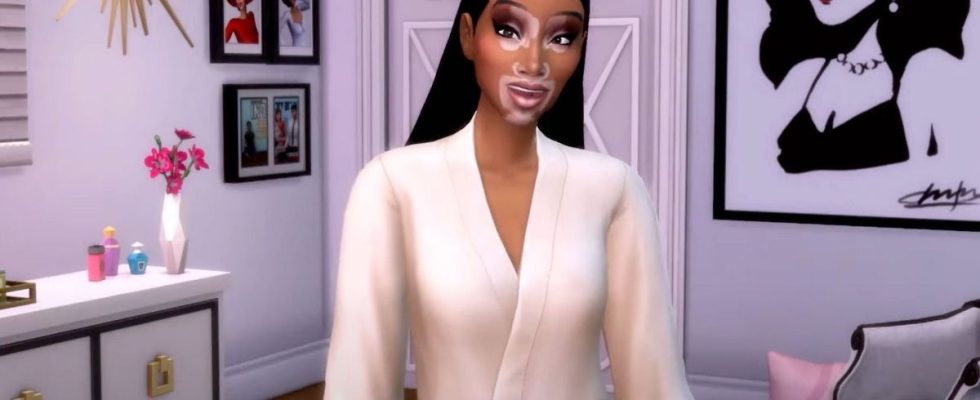Published on
Updated
Reading 2 min.
Long dominated by white, heterosexual male heroes, the world of video games is gradually opening up to diversity. From now on, heroes are just men made of big muscles. They better reflect human singularity and diversity.
Would the world of video games and games in general become more inclusive? Faced with different societal challenges, video games have had to adapt their product to meet the expectations of new consumers. Recently, the video game “The Sims 4” announced that it would now offer characters suffering from vitiligo. Vitiligo is an autoimmune disease characterized by depigmentation of the skin, creating white spots.
Made in partnership with model Winnie Harlow, herself suffering from vitiligo since childhood, updating this new option is completely free. It offers varying levels of vitiligo, with spots that can be placed on several parts of the body.
“I spent a lot of time playing The Sims as a kid and I think it’s so beautiful to be able to portray your true self in the game“, said Winnie Harlow. “This partnership is a powerful statement that encourages players to embrace what makes them unique, both in-game and in real life“.
The Electronic Arts game had already offered an update in 2023 which allowed the creation of characters with disabilities. Players can personalize their sim by adding a hearing aid or a glucometer. They also have the possibility of imagining non-binary or transgender characters, and of adding, in particular, surgical scars on the torso. The goal of this personalization is that as many players as possible can feel represented, and therefore considered.
The power of representation
Barbie had already presented her own doll suffering from vitiligo or even alopecia. There are even Barbies in wheelchairs, with hearing aids or even those with Down syndrome. Disabilities now accepted and celebrated to offer consumers more representations. “This means a lot to our community who, for the first time, can play with a Barbie doll that looks like them” said Kandi Pickard, President and CEO of NDSS. “This Barbie doll reminds us that we should never underestimate the power of representation. This is a huge step forward for inclusion and a moment we celebrate“.
In addition to offering physically different characters, video games and toys also offer more inclusive characters by highlighting other cultures, other career prospects or even other sexuality. This opening is already meeting with success among consumers. Proof of this is the success of the television series adaptation of the video game “The Last Of Us” with its openly gay heroine Ellie and brought to the screen by non-binary actress Bella Ramsay.
Toy giant Mattel is embarking on the path to inclusion by launching a series of inspiring and diverse dolls. In addition to paying tribute to the American actress of Chinese origin Anna May Wong with a Barbie in her image, the brand highlights exceptional women in various fields such as with its collection “Barbie: women in sports – career of the year 2023”.
